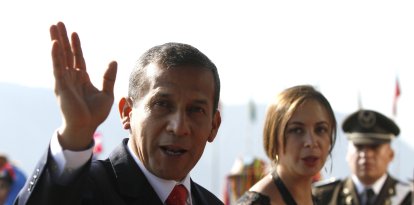The pollster that correctly predicted the results of Argentina's general election says Javier Milei will win in the runoff
Atlas Intel found that 52% of voters prefer the opposition candidate compared to 48% who will vote for Economy Minister Sergio Massa.

(Cordon Press)
Argentina's Economy Minister Sergio Massa and the libertarian oppositionist Javier Milei will compete for the presidency on November 19. After a surprise victory in the primaries, Milei came in second in the first round of the presidential elections. Milei's results in the first elections seemed to guarantee a victory, perhaps even with a wide enough margin to avoid a runoff.
Pollsters fueled the confusion since the majority predicted Milei would win. Atlas Intel was one of the few that predicted the official candidate would win. It was correct in predicting there would be more than four points separating the two candidates (the final scrutiny showed a gap of almost seven). In its most recent publication, Atlas Intel suggests that Milei will win the runoff with 52% of the votes compared to Massa's 48%. If this is true, Milei will become the next president of Argentina.
Point by point
Which candidate do you believe will improve the economy and generate jobs? Who will combat inflation and high prices? Who will be able to reduce poverty? When it comes to issues linked to the economy, Milei has more support than the current economy minister. Respondents also said they trusted Milei more when asked about insecurity, corruption (where the official received his worst score) and international relations.
Massa surpassed Milei on two issues that he has greatly emphasized in his speeches and campaign advertisements: the defense of democratic institutions and human rights. The pollster Aresco, which also believes Milei will win, agrees with the success of the ruling party's so-called fear campaign - ensuring that Argentines will lose rights, subsidies and public benefits if Milei wins. The current minister is supported by voters who want to conserve "issues that already exist," while those who are in favor of Milei have a desire for "change," according to Aresco's conclusions reported by the local newspaper La Nación.
Argenzuela?
Milei's victory in economic affairs is even greater if the "economic liberalism" section of Altas Intel's work is considered. The majority of those who were polled, regardless of their political affinities, said they would rather reduce state expenses instead of increasing taxes (67% versus 16%) and establish a spending ceiling to control debt, although social expenses could be cut (63% versus 19%).
Something similar occurs, although less uniformly, with the rejection of state intervention in the market (45% vs. 38%) and the regulation of prices and services (42% vs. 36%). The trend changes in the management of state-owned companies. The majority is against the government privatizing all public companies (34% vs. 47%).
The support for Milei's policies can be explained in part by another conclusion of the pollster: 56% of Argentines believe that the country “is currently following the same economic path that Venezuela previously experienced." Argentines are calling it Argenzuela.
RECOMMENDATION





















